The Ogasawara Islands | The Bonin Islands
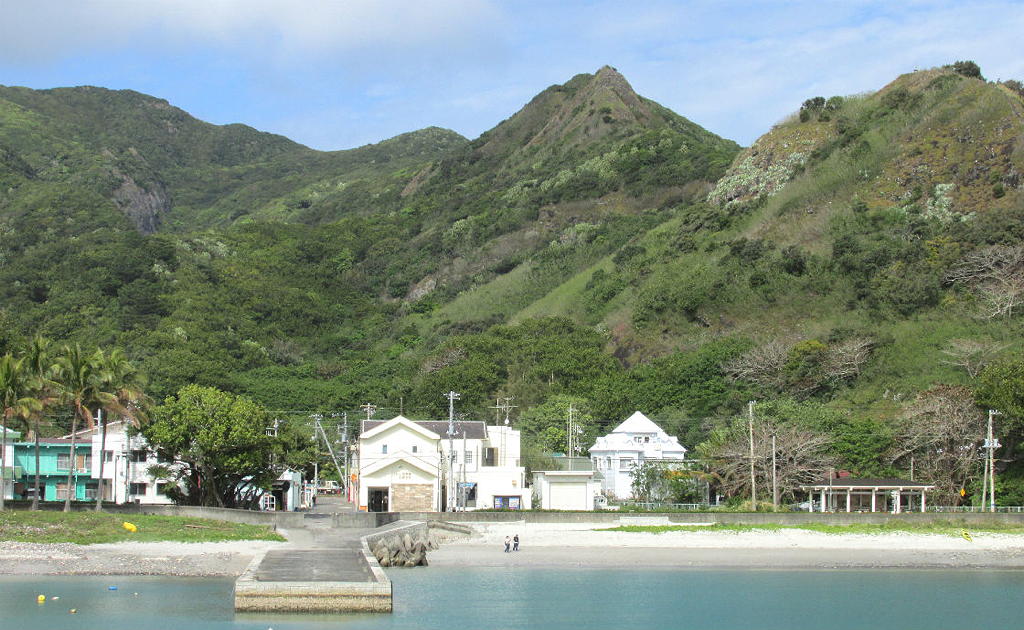
The Ogasawara Islands is the name of an archipelago in the Pacific Ocean located about 1,000 km south of Tokyo. They are sometimes described as the Galapagos of the Orient, though that accolade is better used for Japan's Nansei Shoto — the islands stretching between Kyushu and Taiwan.
Administratively part of Tokyo, there is no airport thus the only access is via the regular ferry, the Ogasawara-maru, which sails three or four times a month from Takeshiba-sanbashi pier in central Tokyo. The less regular cargo ship which also goes there no longer accepts passengers.
Sailing time for the Ogasawara-maru between Tokyo and Chichijima is about 25 hours.
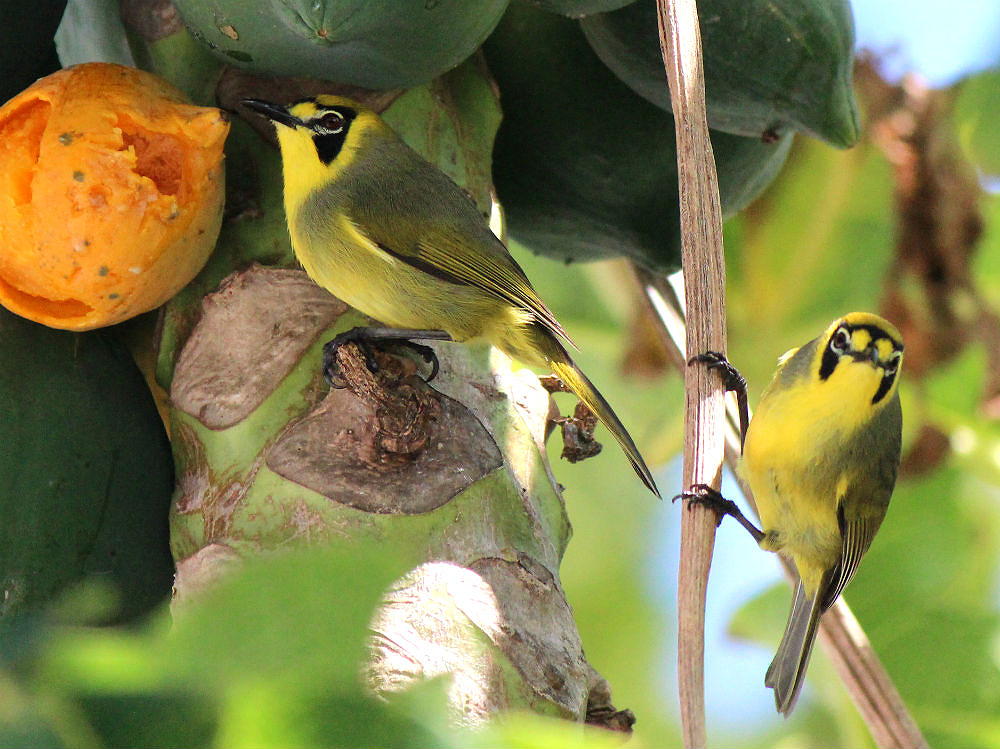 For birders, the main reason to visit this remote part of Japan is to visit Hahajima, where the Bonin Honeyeater / Bonin White-eye – a true remote-island endemic – can be found.
For birders, the main reason to visit this remote part of Japan is to visit Hahajima, where the Bonin Honeyeater / Bonin White-eye – a true remote-island endemic – can be found.
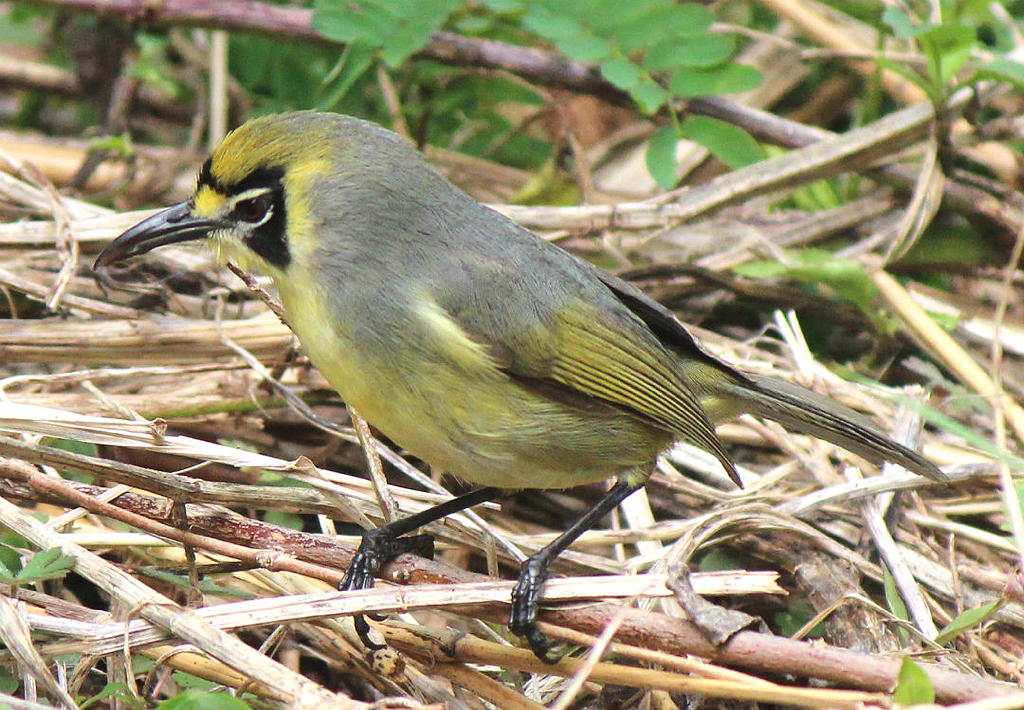 The islands are also the breeding area for globally-threatened Bryan's Shearwater Puffinus bryani.
The islands are also the breeding area for globally-threatened Bryan's Shearwater Puffinus bryani.
There are several islands and islets in the chain, but basically, only three are visited by tourists and birdwatchers: Chichijima, the main island where the ferry from Tokyo arrives and departs from, Hahajima, where the white-eye lives, and Minami-jima where Brown Booby and Wedge-tailed Shearwaters can be found along with White-tipped Reef Sharks and stunning scenery.
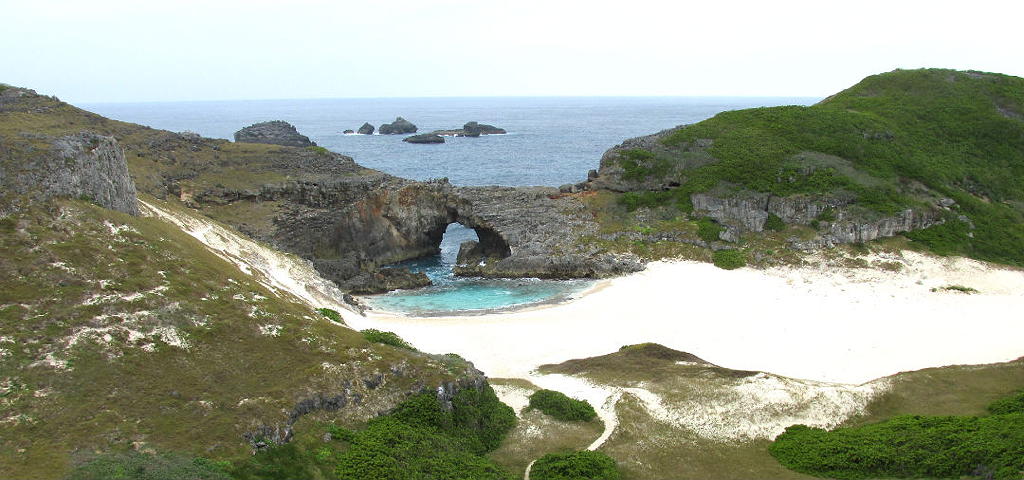 Getting to and from Hahajima is via another ferry, the Hahajima-maru, whose departures and arrivals are timed to coincide with the Ogasawara-maru's schedule. The ferry arrives and departs from Oki port on Hahajima, and in nearby gardens, the white-eye can be found. It can also be seen along the trail to Chibusayama, and at other locations around the well-forested island.
Getting to and from Hahajima is via another ferry, the Hahajima-maru, whose departures and arrivals are timed to coincide with the Ogasawara-maru's schedule. The ferry arrives and departs from Oki port on Hahajima, and in nearby gardens, the white-eye can be found. It can also be seen along the trail to Chibusayama, and at other locations around the well-forested island.
One important point to bear in mind if you are planning to make a trip there: in recent years, a new rule has been introduced in which, at peak travel times – New Year, student vacations in early March, Golden Week and the mid-August Obon holidays – unless you have confirmed accommodation on Hahajima, you will not be able to buy a ferry ticket to the island. This is to discourage camping, which is officially banned in the World Heritage Site.
If you find yourself stranded on Chichijima, there is plenty of accommodation there, and a day trip to Hahajima is possible (which will allow you about four hours on the island). The only alternative is to stay on Chihijima for a couple of nights and then try to get to Hahajima later. Anyway, the Hahajima-maru does not run every day, so you will have to check the schedule at the ferry office, about 50 metres from the pier when the Ogasawara-maru docks. There is also a tourist information office at the ferry port, and another one in the nearby town.
During the winter months, whale-watching cruises are a regular feature in the waters around Chichijima, and the surrounding ocean is home to many Humpback Whale and Sperm Whale, and two species of dolphin: Bottle-nosed Dolphin and Spinner Dolphin.
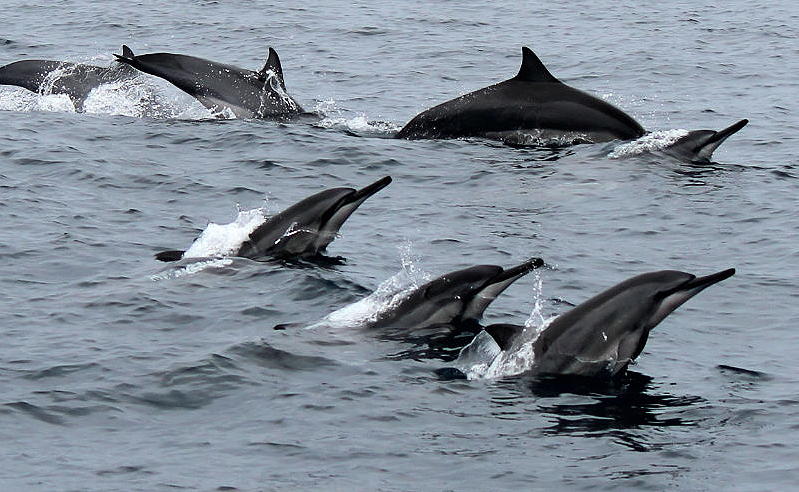 At night, several local guides takes guests on night safaris, with three main objectives: see the endemic Ogasawara Fruit Bat, find the luminous green pepe fungi, and star-watching.
At night, several local guides takes guests on night safaris, with three main objectives: see the endemic Ogasawara Fruit Bat, find the luminous green pepe fungi, and star-watching.
If you are in need of a guide, contact the tourist information desk for details.
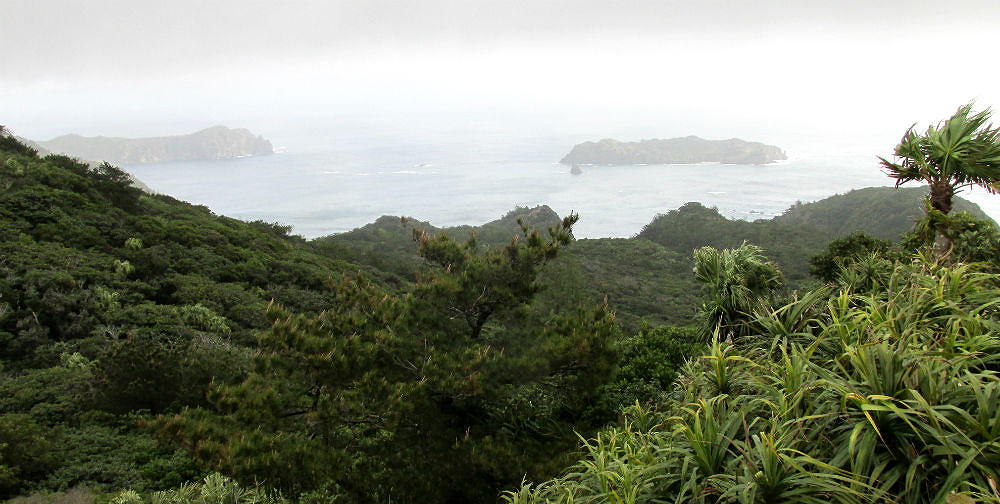
Birds Possible or Likely on The Ogasawara Islands (including from the ferries):
Little Egret, Eastern Buzzard, Common Coot, Pacific Golden Plover, Ruddy Turnstone, Common Greenshank, Japanese Woodpigeon (typical habitat is shown above), Brown-eared Bulbul, Japanese Bush Warbler, Japanese White-eye, Bonin White-eye (Bonin Honeyeater), White's Thrush, Blue Rock Thrush, Grey Wagtail.
In May 2020 the Yamashina Institute of Ornithology published information regarding the local race of the Oriental Greenfinch. The institute quoted researchers as recommending it be split and treated as a separate species — Ogasawara Greenfinch Chloris kittlitzi.
Birds Possible or Likely from the ferries to The Ogasawara Islands:
The species seen vary with the seasons, with the skuas/jaegers appearing during spring and autumn.
Laysan Albatross, Black-footed Albatross, Short-tailed Albatross, Streaked Shearwater, Wedge-tailed Shearwater, Bonin Petrel, Tristram's Storm Petrel, Matsudaira's Storm Petrel, Swinhoe's Storm Petrel, Brown Booby, Red-footed Booby (scarce), Arctic Skua, Pomarine Skua, Long-tailed Skua, Brown Noddy, Common Tern.
Mammals Possible or Likely around The Ogasawara Islands (including the ferries):
Humpback Whale, Sperm Whale, Spinner Dolphin, Ogasawara Fruit Bat, Black Rat.
Useful Information for The Ogasawara Islands:
Accommodation:
Hahajima Accommodation
© 2020 Mark Brazil & Chris Cook
Last updated: 20200707
